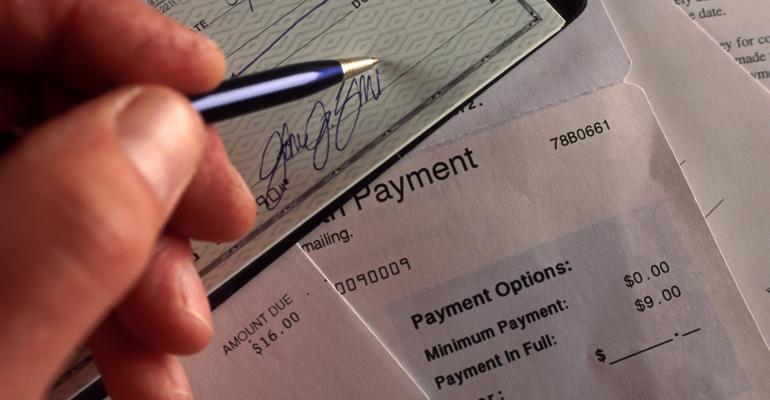Addictive behavior is never pretty.
Whether it’s drugs, alcohol or other destructive vices, it all ends badly.
The same can be said for broker recruiting checks. They belong in the same category because they can have such a deleterious effect on those entrusted with the responsibility of managing money for others.
I was reminded just how hooked the industry remains on recruiting packages after looking at FINRA records of top brokers. Many still regularly jump ship to take a fat check.
Speaking From Experience
Any addictive behavior is obvious to spot, but difficult to break. We’ll get to that in a moment.
In the meantime, I know of what I speak. I used to pedal checks to brokers.
In my experience, selling a check is easy. In retrospect, it doesn't feel good or help any of the parties involved. In essence, you’re promoting harmful behavior for the broker and the branch manager.
When I was check dealing, I saw the impact it had. Typically, brokers adjusted their lifestyle upward after receiving their check, which usually arrives as a lump sum payment. It was spent on a second home, fancy cars and other material things.
Too often, the money wasn’t set aside to pay for college or retirement or to reduce other personal debt. The assumption was that the good times would continue to roll because another check was in the offing.
In fact, checks make brokers feel richer than they really are - just like drugs and alcohol can make you feel smarter and braver than you really are.
The Usual Suspects
We all know that the wirehouses are the major check dealers.
However, over the past few years, recreational check dealers have begun to surface. They include Focus Financial, United Capital and Hightower, among others. They appeal to check addicts, but they are not a long-term solution, either.
Recreational check dealers play the game differently. The checks aren’t as rich as those from the wirehouses, but at the end of the day, they are still checks.
Which leads to the most important question: How do we address this problem?
Charles Duhigg’s New York Times bestseller – The Power of Habit – does an excellent job of explaining how to change bad behavior and establish good habits. His book references Alcoholics Anonymous, which he notes is the most successful organization in turning around the lives of those in need to change their bad habits.
A Four-Step Program
We don’t want to trivialize the importance of those who really do need help from AA. However, we do believe there are some valuable lessons that can be drawn from AA’s formula.
Here’s our version of a four-step program for those with a habitual check addiction:
- Admit the problem. Once you realize you’re a habitual check recipient, you can take control and stop the cycle of behavior.
- Seek help. AA structures its program as group discussion. That fosters self-awareness and creates a moral inventory for all of its participants and a support network of people who are dealing with the similar problems.
- Reconcile with those who matter. AA helps people recognize that they need to make good with their friends, family and clients.
- Tell other addicts. Change is possible!
Advisors – and people in general – don’t seek help until they have hit rock bottom.
Advisors hit rock bottom because they lose their biggest client. Or their firm changes compensation. Or their business partnership implodes.
When this happens, seeking the help of a support group is essential.
Remember, friends don’t let friends take checks.
Jeff Spears is Founder and CEO of Sanctuary Wealth Services and author of the blog, Wealth Consigliere. Follow Jeff on Twitter and Facebook.





